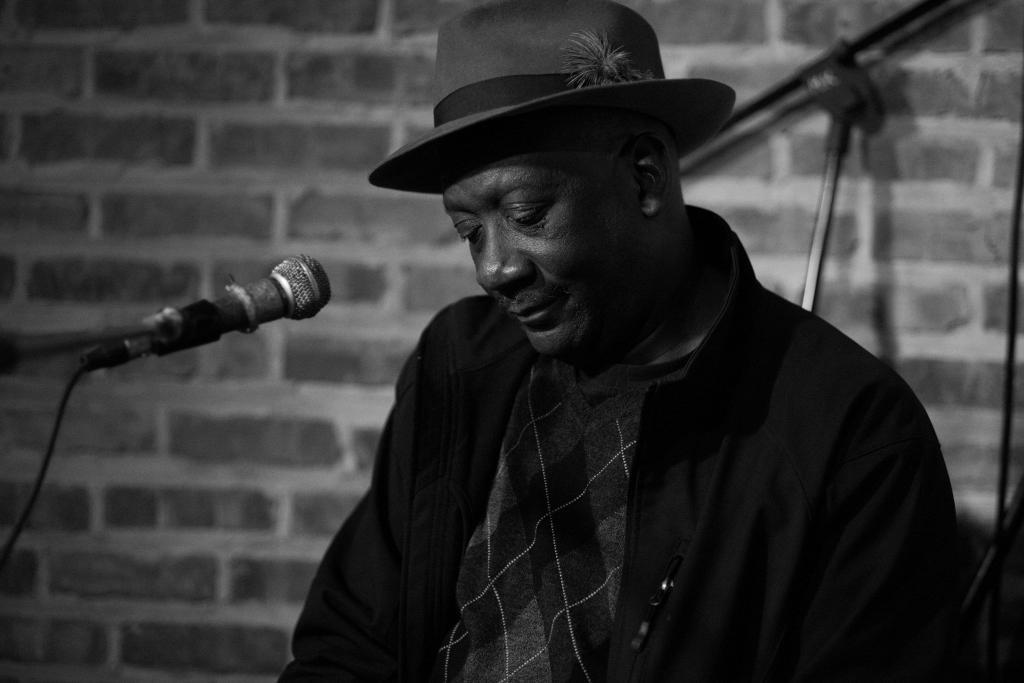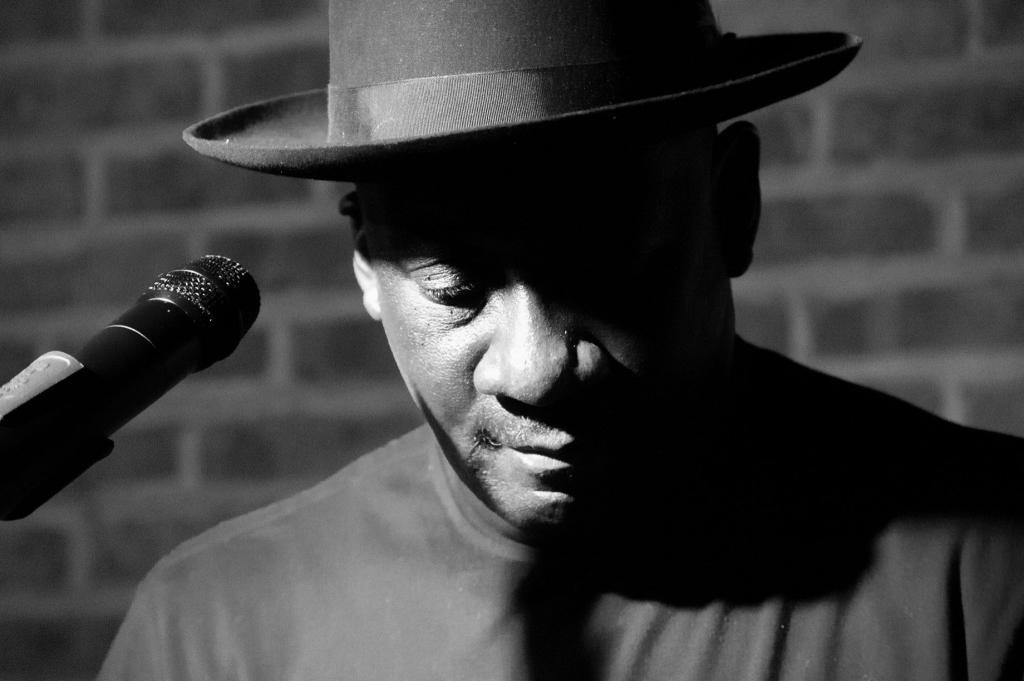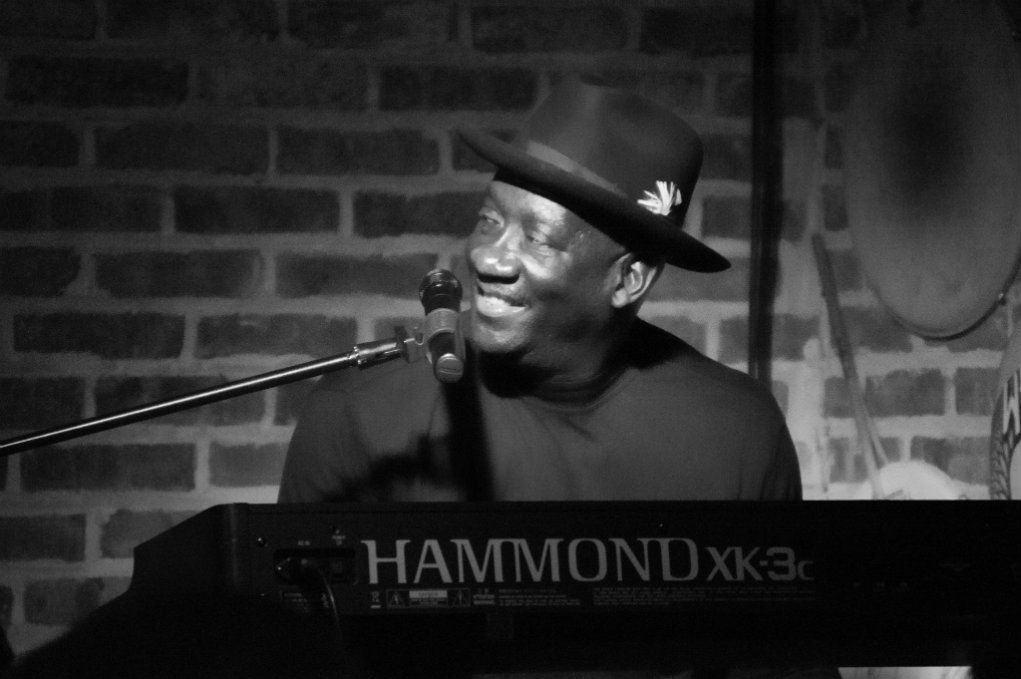Charles Brown (Downtown Charlie Brown) was born and raised in Morristown, NJ. While in high school Charlie participated in 3 Varsity sports (basketball, soccer, and baseball) receiving All State honors in basketball and baseball. He was also a member of “The Elusions,” an R&B band, where he played trumpet and added vocals on occasion. Like many blues and R&B artists he sang in the church choir. After graduating from Morristown High School, Charlie attended Lehigh University where he played basketball and graduated with a degree in economics and marketing. He scored enough points to be inducted into the Lehigh Athletic Hall of Fame.

In 1989 Charlie moved to Leawood, Kansas (Kansas City suburb) where he met Roy Searcy, a jazz and blues piano player who became his blues piano mentor. In 1994 Charlie moved to Aurora, Illinois working for AT&T. He spent some time honing his music skills at the Old Time School of Folk Music and formed the “Downtown Charlie Brown Blues Band.” The band plays weekly throughout Chicagoland and Indiana, including Buddy Guy’s Legends in downtown Chicago. Charlie focuses on classic blues; primarily Delta and Chicago styles. He plays keys, slide guitar (primarily resonator), sings, and manages the “Downtown Charlie Brown Blues Band.” In addition, he fronts the band with Dee Dee Hardy. He also performs as a duo with Harry Binford and a trio with both Dee Dee and Harry. He has opened for KoKo Taylor, Eddie Clearwater, Lil’ Ed, and a host of other blue greats. On occasion, Buddy Guy has graced the stage during his band’s performances at Legends.
Charlie’s musical influences include: Muddy Waters, Pinetop Perkins, Robert Johnson, and Mississippi Fred McDowell. Charlie is school teacher during the day and a musician at night. He’s either playing a gig at Legends in Chicago, The Uptown, or Johnny’s Blitz in Westmont, Illinois, (Muddy’s last home) or hosting an open mic at Miss Kitty’s in Naperville.
Brant Buckley:
Who are your favorite Blues artists and why?
Downtown Charlie Brown:
My top three artists are Muddy Waters, Pinetop Perkins, and Robert Johnson. In terms of artists around today it’s Buddy Guy and Eric Clapton. Muddy Waters brought Delta blues to Chicago. Chicago blues can be defined by what he did. I love playing slide guitar and I love Robert Johnson. I am trying to learn all of Robert Johnson’s songs. I have about 18 of them down. He recorded 29 songs. My goal is to learn everything he recorded. I like Pinetop because I started out primarily as a Honky Tonk piano player. Buddy is the king of the blues and he keeps it alive. Every time I have seen an Eric Clapton concert, he pays homage and gives credit to all the guys who came before him. On the big screens he may have Robert Johnson or Muddy Waters up, depending on what song he is playing.
Can you talk about your band Downtown Charlie Brown Blues Band?
We have five people: Reggie Harrington on bass, Harry Binford on guitar, Glover Washington on drums, Cliff Williams subbing on drums or bass when needed, Dee Dee Harding on vocals, and I’m on keys, guitar and vocals. Dee Dee and I usually split vocal duties during our set, and we perform a few songs together. When we started out we played blues, R&B, and some Rock N Roll. As we started getting different gigs, I would cater to particular audiences. I’m from the east coast and I grew up on R&B, but blues is where my heart is. I was talking to Vino Louden, Koko Taylor’s bandleader, one day in Aurora after a blues fest and he said, “Nobody does Charlie Brown better than Charlie Brown.” At that point I decided to focus on blues. That is when blues became my primary focus. I do still play Rock and Roll; and R&B at times. When I play guitar, Delta blues is my primary focus. We play as a full band, duo, or trio. With the band we play both Delta blues and Chicago blues, Rock and Roll, with a little R&B. As a trio it’s Delta and Chicago Blues. As a duo Harry and I focus on the Mississippi Delta throughout the set.
You are one of the few Delta guitar players in the Chicago area: How did this come to be and why?
I have had a blues band for over twenty years called “Downtown Charlie Brown Blues Band” and Harry Binford is the main guitar player in my band. About two years ago we started talking about playing as a trio. Pay for blues musicians isn’t that great and it’s tough when you have a five piece band. Sometimes it’s easier to get a gig when you have 2 to 3 people. We started learning Delta music and it’s something that I have always wanted to do. Harry bought a resonator and I went out and bought one. We started getting together once a week to learn and practice. Donna Herula, who is an excellent slide player, in the style of Bonnie Raitt, started giving me lessons. She’s an excellent teacher and also plays at Buddy Guy’s Legends. She showed me the licks, I practiced, and I went out and played. I still use Donna as a resource regularly.
How has your sports background helped you play in a band?
I think being well rounded and doing a lot helps you so you don’t get in a rut and get bored. When you play sports you are never going to win every game. It’s impossible. All of the ups and downs that you face in athletics makes them easier to face in life. Even in music you may get a gig and it may get canceled. You may try to get booked at a certain place and you don’t get the gig for whatever reason. It helps you with all of the ups and downs that you will face within music and helps you focus on what your real goal is.

Does your piano playing show up in your guitar playing? Has one inspired the other?
My piano playing definitely has inspired my guitar playing. Within piano, I already knew all of the chords and scales. Picking up the guitar was about learning the technique more than anything else. I already knew all of the blues theory. It was a pretty quick transition from piano to the guitar. I’m not a virtuoso on the guitar but when it comes to blues, I can hold my own.
You have Howlin’ Wolf power when you sing: Did you work on your voice or is it natural?
I think it’s a combination. Like a lot of African Americans I sang in the church choir as a kid. As I got older I started listening to Howlin’ Wolf and Muddy Waters. I can’t do what they do but I try and keep their tradition. Part of my sound comes from just how I sing but, I do listen to them and I try to preserve the traditional style; especially since I am from the North East and not Mississippi, styles may be different.
Musically, what else do you want to accomplish?
I take my plans and goals day by day and they also change and migrate. I enjoy playing and I am getting close to the age where I can retire from teaching school full-time. I teach business classes. I am migrating to making music full-time and teaching part time. I am on the website for The Blues Foundation’s Blues in School. I want to start doing Blues in School. I love talking about the history of Delta Blues and where the songs come from. It’s interesting when you look at Robert Johnson. He was a womanizer and was married by age nineteen. His wife died in child birth and he wrote “Love in Vain.” Thomas Dorsey, that father of Gospel who has Chicago roots, went through the same situation. His wife died in child birth. He didn’t play for a long time and wrote “Precious Lord.” Robert Johnson went the total blues route and Thomas Dorsey went the Gospel route. It is very interesting to see what these guys did. Muddy Waters’ early stuff was just like Robert Johnson. I find it very fascinating and I love to talk about it when I am playing. Blues in School seems like a good fit for me. I want to continue to perform, teach school part time, teach the blues, and keep the blues alive. That’s my main goal.
Downtown Charlie Brown
*All photos © Joel Turner


